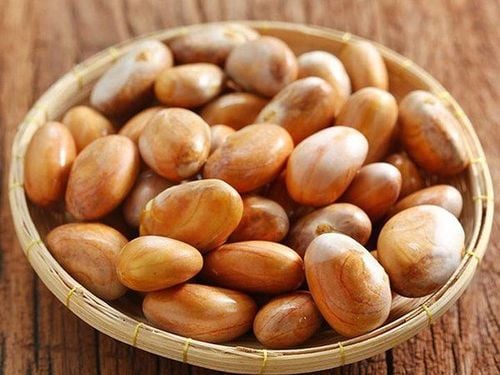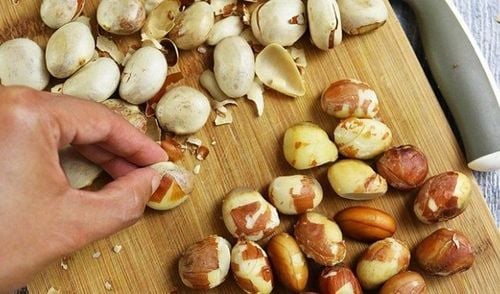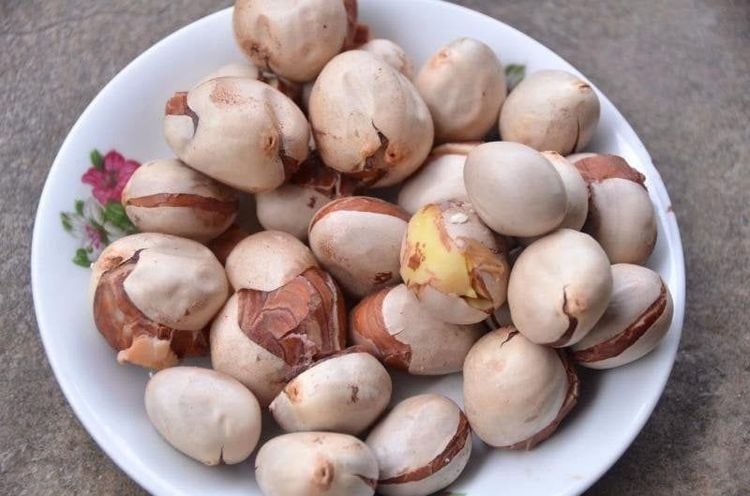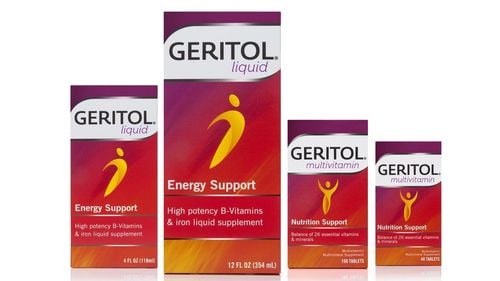Jackfruit is the largest fruit in the world, containing a variety of nutrients such as protein, Vitamin B, and potassium. However, did you know that the seeds of this fruit are also highly beneficial for health? These seeds are rich in thiamine and riboflavin, which help convert food into energy and keep your eyes, skin, and hair healthy. Read on to learn more about the benefits of eating jackfruit seeds.
1. What you should know about jackfruit seeds
Jackfruit is a fruit found in many regions across Asia. It has become popular due to its delicious, sweet taste and various health benefits. However, the flesh isn't the only edible part of this fruit — a single jackfruit can contain between 100 and 500 edible and nutritious seeds. Despite their beneficial nutrients, jackfruit seeds are often discarded.
Jackfruit seeds also provide small amounts of essential minerals such as zinc, iron, calcium, copper, potassium, and magnesium. They contain compounds with antibacterial properties that may help prevent bacterial contamination, which causes foodborne diseases. These seeds have been used in traditional medicine to support digestive health, though further research is needed to confirm these potential benefits.
This article explains everything you need to know about jackfruit seeds, including their health benefits, potential concerns, and how to incorporate them into your daily diet.
2. Health benefits of jackfruit seeds
2.1. Nutritional content of jackfruit seeds
Compared to other tropical fruit seeds, jackfruit seeds are rich in vital nutrients. They contain high levels of starch, protein, vitamins, minerals, and antioxidants. A serving of jackfruit seeds (about 28 grams or 1 ounce) contains:
- Calories: 53
- Carbs: 11 grams
- Protein: 2 grams
- Fat: 0 grams
- Fiber: 0.5 grams
- Riboflavin: 8% of the daily recommended intake
- Thiamine: 7% of the daily recommended intake
- Magnesium: 5% of the daily recommended intake
- Phosphorus: 4% of the daily recommended intake
Jackfruit seeds are also a good source of two B vitamins — thiamine and riboflavin. Both vitamins help provide energy for our bodies and perform other crucial functions. Moreover, jackfruit seeds provide fiber and resistant starch, both of which pass through the body undigested and serve as food for beneficial gut bacteria. Fiber and resistant starch are associated with several health benefits, including appetite control, blood sugar regulation, improved digestion, and better insulin sensitivity.

2.2. Health benefits of jackfruit seeds
Jackfruit seeds have been used in traditional Chinese medicine as an aphrodisiac and to treat digestive problems, along with various other uses. Modern research has also discovered some of their potentially beneficial properties.
Possible antibacterial effects
In traditional medicine, jackfruit seeds are sometimes used to reduce symptoms of diarrhea. In fact, studies have shown that jackfruit seeds may have antibacterial properties. One study found that the surface of jackfruit seeds is covered by small particles that act as antibacterial agents. These seeds were tested against common bacteria like E. coli, and the research concluded that jackfruit seeds could potentially be developed into treatments to prevent foodborne diseases.
However, more research is needed to investigate the effectiveness of jackfruit seeds for these purposes.
Possible anti-cancer properties
Some studies suggest that jackfruit seeds may have anti-cancer properties, likely due to their impressive content of plant compounds and antioxidants. They are rich in antioxidants, particularly flavonoids, saponins, and phenols. Research has shown that these plant compounds may help fight inflammation, boost the immune system, and even repair DNA damage.
A recent in-vitro study found that jackfruit seed extract reduced the formation of cancer blood vessels by 61%. However, this research is limited to studies on animals and in vitro. More studies are needed to determine whether jackfruit seeds have anti-cancer effects in humans.
May improve digestive health
Like other seeds, jackfruit seeds contain both soluble and insoluble fiber. Fiber passes through our gastrointestinal tract without being broken down by enzymes and helps normalize bowel movements by increasing stool bulk, making it softer, and gradually increasing frequency.
Moreover, fiber is considered a prebiotic, meaning it nourishes beneficial bacteria in your gut. These gut bacteria help support healthy digestion and immune function. Numerous studies have found that increasing fiber intake can help reduce constipation. Additionally, fiber may help protect against inflammatory bowel diseases and alleviate symptoms of hemorrhoids.
May lower cholesterol levels
Research has also shown that jackfruit seeds may help improve your blood cholesterol levels. This effect is likely due to their high fiber and antioxidant content. Elevated levels of LDL (bad) cholesterol are associated with high blood pressure, diabetes, and an increased risk of heart disease. On the other hand, higher levels of HDL (good) cholesterol have been shown to have protective effects on the heart.
A study on mice demonstrated that those fed a higher amount of jackfruit seeds had lower levels of LDL cholesterol and higher levels of HDL cholesterol compared to mice fed fewer seeds. However, research in this area is limited to animal studies, so more research in humans is needed.

3. Potential side effects of eating jackfruit seeds
While jackfruit seeds are associated with various health benefits, they also come with some potential concerns.
3.1. May increase bleeding risk when used with certain medications
People who are taking medications that increase the risk of bleeding should exercise caution when consuming jackfruit seeds. One study showed that jackfruit seed extract could slow down the blood clotting process and even prevent the formation of blood clots in humans.
Therefore, jackfruit seeds may increase the bleeding risk when taken alongside blood-thinning medications.If you are using any of the following medications, it’s advisable to avoid eating jackfruit seeds:
- Aspirin
- Anticoagulants (blood thinners)
- Antiplatelet drugs
- Nonsteroidal anti-inflammatory drugs (NSAIDs) like ibuprofen or naproxen
3.2. Contains antinutrients
Raw jackfruit seeds contain powerful antinutrients known as tannins and trypsin inhibitors. These substances can interfere with the absorption and digestion of nutrients. Tannins are a type of polyphenol commonly found in many plant-based foods. They can bind to minerals like zinc and iron, forming insoluble complexes that reduce the body’s ability to absorb these essential minerals. Trypsin inhibitors are proteins found in various foods, including soybeans, papaya seeds, and jackfruit seeds. Like tannins, they disrupt protein digestion and make it harder for the body to break down food. For these reasons, jackfruit seeds should never be eaten raw.
The good news is that heat deactivates these antinutrients. Therefore, cooking jackfruit seeds by roasting or boiling them can significantly reduce their antinutrient effects.

4. How to add jackfruit seeds to your diet
Jackfruit seeds can be enjoyed in a variety of ways, similar to other seeds. Here are some easy ways to incorporate them into your diet:
- Add them to salads.
- Make hummus using jackfruit seeds.
- Grind them into flour to use in baking or cooking.
- Add them to smoothies.
- Make jackfruit seed butter.
- Use them as a healthy snack.
Since raw jackfruit seeds contain antinutrients, it’s best to cook them. Boiling or roasting are the most common preparation methods. You can boil jackfruit seeds in a large pot of water for about 20 to 30 minutes. Once soft, drain the water, let them cool, dry, and enjoy. You can also roast the seeds by preheating the oven to 400°F (205°C), placing them on a baking sheet, and roasting for 20 minutes or until they turn brown and aromatic. You can use roasted seeds to add flavor and crunch to dishes.
Jackfruit seeds are not only edible but also highly nutritious. They are linked to various health benefits, including improving digestive health and cholesterol levels. However, they can hinder nutrient absorption if eaten raw and may increase bleeding risks in individuals using certain medications. Scientists recommend consuming jackfruit seeds cooked (boiled or roasted) to maximize both flavor and health benefits.
If you have any questions regarding nutrition for your body, it’s best to consult with a doctor. You can leave your question in the "ASK DOCTOR VINMEC" section directly on the hospital’s website. Your question will be sent to a doctor, and you’ll receive advice as soon as possible!
To arrange an appointment, please call HOTLINE or make your reservation directly HERE. You may also download the MyVinmec app to schedule appointments faster and manage your reservations more conveniently.
Reference sources: healthline.com, medicalnewstoday.com
To arrange an appointment, please call HOTLINE or make your reservation directly HERE. You may also download the MyVinmec app to schedule appointments faster and manage your reservations more conveniently.








